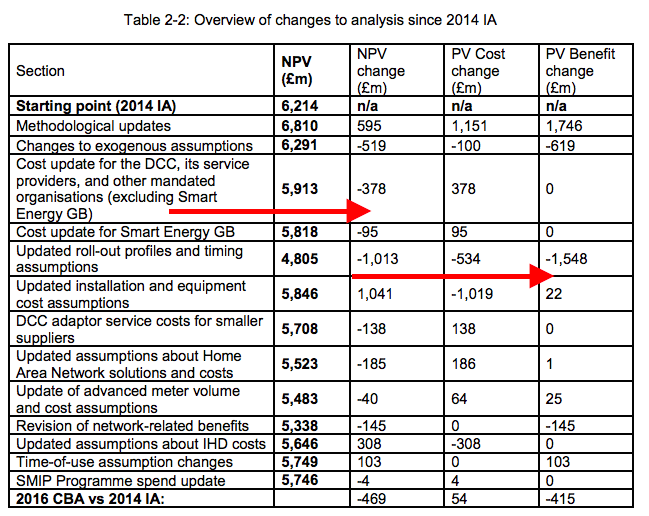 SSE has urged government to reconsider the 2020 deadline for completion of the UK-wide smart meter rollout or risk further costs being piled on to consumers.
SSE has urged government to reconsider the 2020 deadline for completion of the UK-wide smart meter rollout or risk further costs being piled on to consumers.
While government is sticking to its estimates, the rollout may well cost considerably more than the £11bn forecast two years ago year by the National Audit Office. The NAO suggested that programme benefits, while outweighing the cost, were unlikely to significantly reduce energy bills.
Government’s own figures confirm that view, with projected benefits delivered by the programme already £415m down from 2014 estimates. Latest BEIS figures suggest annual bill savings for dual fuel households of £11 by 2020. The department says ‘average’ annual non-domestic savings for electricity and gas will be around £128.
MPs on the now defunct Energy & Climate Change Committee were more critical than the NAO, cataloging a host of major problems with the rollout and warning that the project would become “a costly failure” if government did not take a more active role.
Since the Committee’s report, key elements of the programme, such as the central communications infrastructure provided by the Data Communications Company (DCC), have drifted further off course (to the tune of £378m in lost programme benefits, according to BEIS, with the knock-on effect wiping out £1.5bn in benefits). SSE, as it warned the Committee last year, believes that makes the 2020 deadline enshrined in law unattainable.
“Combined with a range of other outstanding constraints, [the DCC delay] is undermining confidence in the programme and compressing the window in which suppliers can roll out the enduring solution at scale, driving up costs and creating challenges for the industry,” said the firm in its half year results statement.
“It is therefore SSE’s view that a reconsideration of the delivery timetable is urgently required in order to protect customers and ensure benefits are delivered.”
Government should honour “the commitment to the offer of a smart meter to all by 2020” but not insist upon suppliers “taking all reasonable steps” to install a meter in every one of the UK’s 30 million households and business, the firm suggested.
SSE has 8.14m energy customers and must install more then 7m smart meters. So far, it has installed 330,000 smart meters, up from 100,000 in September 2015. That suggests SSE will need to increase the rate of installation by an order of magnitude to hit the 2020 deadline.
Other energy suppliers are in a broadly similar position, which suggests that the call for pragmatism may eventually become a moot point.
Update: BEIS Secretary of State Greg Clark’s speech at the EnergyUK conference confirms the 2020 deadline is for “the offer” of a smart meter.
Related articles:
Free 2016 demand-side response report, including 200 end user views
MPs blast smart meter programme
Government sets out smart grid stall – moots peak power pricing for everybody
Capacity market call creates £2,500MWh price spike, Grid says ‘market working’
Click here to see if you qualify for a free subscription to the print magazine, or to renew.
Follow us @EnergystMedia. For regular updates, sign up for the free newsletter.





The 2020 deadline has always been for an “offer”. Greg Clark’s comments are nothing new. There is no law — nor has there ever been a law — mandating smart meter installation for homes and small businesses. Smart Meters are voluntary, not mandatory. ‘Twas always thus.
Correct, and article amended to reflect that. But requiring suppliers to simply “offer” a meter by 2020 instead of “take all reasonable steps” to deliver on that offer may well represent a softening of the timetable.